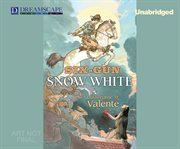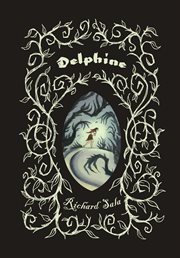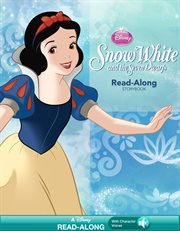Six-Gun Snow White THE CREATION OF SNOW WHITE I accept with equanimity that you will not credit me when I tell you Mr. H married a Crow woman and had a baby with her round about the time he struck his fortune in the good blue, which is how folk used to designate Nevada silver. It don't trouble me none if any soul calls me a liar. The biography of Mr. H is well known: He had one wife and one son and that was the beginning and the end of his capacity for love, excepting of course the copper lode in Peru, gold prospects in the Dakota Territories, the Idaho opal mine, and other pursuits I cannot tell you about as they are beyond my ken. Most everyone grants he was a kingly fellow, else the blue would not have showed itself to him. That is a wholly peculiar way of thinking, but it is very common. This is the truth of it: Flush and jangle with silver and possessed of a powerful tooth for both spending and procuring more of whatever glittered under the ground, Mr. H traveled to the Montana Territory on a horse so new and fine, her tail squeaked. He disliked to travel in company, being a secretive man by nature. Mr. H had a witch's own knack for sniffing out what the earth had to give up. The notion of a sapphire rush brewing in the Beartooth Range pricked up the north of that Comstock-compass stuck in his heart. All the way out in San Francisco he felt the rumble of the shine. However, upon his arrival in Billings and establishment at the Bear Gulch Hotel, the whiskeytalk leaned another way: black diamonds. That is how coal miners appellate their livelihood. In my experience, folk find it nigh on impossible to call a thing what it is. It never mattered much to Mr. H whether silver or sapphires or coal or copper weighed his pockets just so long as he never walked empty. He made his arrangements to accompany a pair of Cornishmen into the range the next morning. He strode out into the bone-cracking cold to survey the town, though Billings in those days could barely be called more than a camp. Horseshit outnumbered honest men by a margin. Mr. H encountered the woman who would be his first wife by chance alone. She turned up like an ace of spades in the general store, trading elk meat for cotton cloth and buttons. Her brother, who had shot the beast, escorted her. But the girl did the bargaining. She had good English and did not like the owner of the general store. The terrible covetous heart of Mr. H immediately conceived a starvation for the girl not lesser in might than his thirst for sapphires or gold. In the lamplight her hair had the very color of coal, plaited in two long braids and swept up at the brow into what I have heard called a pompadour. Her dark mouth was a cut garnet, her skin rich copper, her eyes black diamonds for true. She looked over her shoulder at him and her body hardened to run if such became necessary. Mr. H took this slight stiffening as a sign that his feeling was returned. He saw no reason any person should fear him, being well dressed and pleasant enough in his features. He had loved women already in his time, though never married, all of them of good though not old family. Square-shouldered, sunburned freckles and kisses like milk and hair brushed a hundred times before bed. He savored a rich seam of shame over his lust for the Crow woman, and this shame made him only more needful. Mr. H purposed himself to have her. He inquired after her name, her family, how often she visited the town to trade, where she and hers might make their camp. The Beartooth coal ran thick and deep, but he did his business by rote. Mr. H had sung his song many times. It sang itself. His true occupation was now the striking of the Crow woman, whose name was Gun That Sings. At first, his imagination wakened only to the possibility of bedding her. He saw no reason this should not be possible and right quick. Silver speaks louder than sin. But when Gun That Sings returned to town with her relations and Mr. H had opportunity to clap eyes on her again, he knew he could not be satisfied except to own her entirely. A man don't rent a silver mine. He buys it right out. He attired himself in a fine new suit sent by coach from San Francisco along with jewelry, gowns, and other items indicating his affection, for he was prepared to make her a civilized woman. He would put silk on her body and emerald combs in her hair. He would teach her to read Shakespeare and encourage her to play out the part of wild Titania in his parlor at home, naked save for a belt of violets. He would instruct her in the saying of the Lord's Prayer and the keeping of the Sabbath; he would deliver to heaven a sterling modest maid. The anticipation of transforming her inspired a pleasure so sharp that Mr. H necessitated an entire afternoon to recover from it. When Mr. H deemed the great moment of his matrimonials to have drawn close, he rode out on his combed and curried horse across the Bighorn River to the village of Gun That Sings's people. Mr. H had often purchased meat and horses from Indians at what he considered a fair price and foresaw no trouble. The card-men at the Bear Gulch Hotel had informed him that the Crow allow their women to rule like heathen Cleopatras, and so Mr. H addressed himself to an old and august lady he spied leading a horse to pasture, requesting the presence of his bride-to-be. When Gun That Sings was produced, Mr. H suffered some disappointment. She would not look at him, but kept her eyes fixed on the dirt. Her braids caught the winter light and seemed now not only as rich as coal but veined with liquid silver. Mr. H felt a powerful need. He behaved himself as though to a white woman. He presented his prospects to the maiden's mother, his silver mine, his hopes for Dakota, his colleagues in Sacramento, his friends in Washington. As he described himself, the resolve of Mr. H hardened along with his impression of his own endowments, and he lost any doubt that he would be married before the night. Only an addled woman would despise the ring of such an excellent example of frontiersman quality. I do not know what Gun That Sings said to him. If I had my rather, I would put words in her like bullets. I know she spurned him. That I do know. Mr. H recovered his pride on the quick. Sometimes a man finds it necessary to work a claim for a space before it gives up the blue. He returned to his rooms to collect the bride gifts that would ensure her. Mr. H chose a gown like the sun to represent him. It sported a high bustle as was the fashion in the city, with sharp pleating at the skirt-hem and a neckline I would not wear if it were stitched in paper money. But the color did not recall the wholesome sun of spring. Its model was instead the terrible inferno of the sun itself, hanging in black space like a Utah ruby, erupting into eternity, pocked with lava. Once again, Mr. H rode out past the river and presented the baleful dress to Gun That Sings. She looked on it and began to shake in her shoes. Mr. H pressed the gown upon her, but she wept bitterly into the cloth and said to her mother: "These are white woman's clothes. Put them in the river; I will burn up inside them." Mr. H brought next a gown like the moon. This one presented a wasp waist and high lace collar. So much fabric in that skirt, it bent a back to lift it over its skeleton hoop of leather and wire. The shimmer of it took after the moon itself, hard and without poetry, stuck in the orbit of the thoughtless earth like a California pearl. Mr. H laid the dress across the flank of his horse like a stolen girl and forded the Bighorn to lay it out for Gun That Sings. She trembled something fearful and tore the brocade wrestling herself free. She said to her mother: "These are clothes for a white woman. Give them to a white woman. Put them in the fire; I will choke on them." Mr. H suffered no discouragement, for desire speaks louder than decorum. He drew from his trunk a gown like the stars at night. Its long sleeves and gathered skirt were black as Bibles, stitched all over with tiny crystals. In its folds Mr. H concealed a necklace of Colorado diamonds so fine and luxurious, anyone who looked at it felt like they were looking at a naked woman and turned away. The dress of stars glowed with cold, lonely fire, like the Dog Star howling in the black. Mr. H saddled his horse and rode out a third time. When Gun That Sings saw the dress and the necklace, she tried to run from it like it was death come for her, but Mr. H caught her up in his arms. He felt a big man with her there, not going anywhere at all. He held her by the throat. He put the necklace on her, all them diamonds hanging down her chest like war medals. Gun That Sings did not cry but stared him down with fury and didn't say a damn thing. Mr. H didn't let her go for a second. He stood to Gun That Sings's brothers and her mama and her father with his hand on the butt of his gun and told stories about how hitched up he'd got with General This-and-That and Senator Big-Name, and wasn't it a nice patch of earth you people have here, right on the river and green as you please. All his Washington friends would just pick up and move right on out here fast as a cough if they could see it. Gun That Sings heard what he had to say and what he didn't say, too, and the next Sunday she stood there in her dress of stars and said her vows and signed her name Sarah H on the register, because you can't name a girl for a gun in civilized society. And I guess that's how a man gets a wife. I've heard it told elsewise, but I don't believe it. Well, Mr. H took his bride to a place he was building, a castle by the sea. He put silk on her body and emerald combs in her hair. He brushed out that hair every night, wrapped himself up in it, drank up the color and heat of coal in it. He kissed her dark blood-bright mouth over and over as if he could drink out the color of it, too. Mr. H told it with pride that he taught her to read Shakespeare, even though she had English letters just fine already. He made her play wild Titania for him wearing nothing at all, not even violets. He instructed her in the saying of the Lord's Prayer and the keeping of the Sabbath, and he got her with child. In his private prayers, Mr. H said the following: Let this child have hair like hot coal, and lips bright and dark as blood, but, oh Lord, if you're listening, skin as white as mine. By now I expect you are shaking your head and tallying up on your fingers the obvious and ungraceful lies of my story. Well, I have told it straight. A body can only deliver up the truth its bones know. Its blood, which is its history. My body is my truth, and I have laid it out as evidence on the table of my father's reputation, for by now you may have guessed my next revelation: I was the child Mr. H put inside of Gun That Sings. Mrs. H uncovered her condition in wintertime. It did not snow much in that part of the country, but the ground did freeze, and frost over, and purchase from heaven a meager dusting of the cold stuff. Gun That Sings went out into the forest at night. All the stars like dresses hung up in the sky. She took up a kitchen knife and hacked at her arms until steam rose out of her like she was a kettle. Her blood dripped down onto the white ground and she hoped she'd die, but she didn't. Mr. H's people found her and patched her up and locked her in a little room till the baby could come, at which point she died anyway, all alone in that big, unfinished house. Excerpted from Six-Gun Snow White by Catherynne M. Valente All rights reserved by the original copyright owners. Excerpts are provided for display purposes only and may not be reproduced, reprinted or distributed without the written permission of the publisher.



